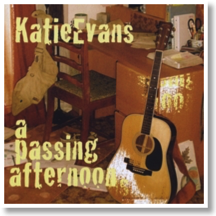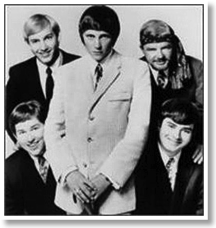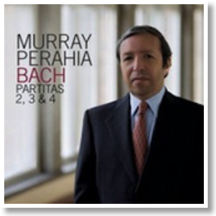January 2010
A Passing Afternoon

A Passing Afternoon
No label
Katie Evans has a new debut release titled A Passing Afternoon. Each of the 12 tracks is more than just basic alternative folk platforms in the space of under four minutes. Each track emphasizes Evan’s solid singing and songwriting pose (she authored all the songs here) and piano and acoustic guitar skills. True, records about life’s highs and lows are bottomless, but what makes A Passing Afternoon really work is Katie’s caressing, melancholic vocal delivery in a journey of “fears, pain, joy, lessons learned, the people in my world, broken hearts, hearts mending…my life” that is at once inspirational and inspired, almost like a lullaby but with enough power to keep the senses attuned. This is really evident in the illuminating treat of “Your Call,” the album closer that is clearly Contemporary Christian: imagine Rebecca St. James performing alternative folk, but with a little more vocal touches.
In a barebones backing, Katie confesses the power of a higher love. If one were to look at the CD’s jacket, they would see a Biblical quotation that finely captures this song: “Faith, Hope, and Love...but the greatest of these is Love” (1 Corinthians 13:13). Such a quote is also a testament to Katie’s passion in communicating musical messages to regular people.
If you crave songs about ordinary life coated in a sweet but realistic viewpoint, turn your direction here and let A Passing Afternoon not pass you by.
by Jeff Boyce
Egyptland

Egyptland
Onager
Although a sizable chunk of the album was recorded in Austin, Texas, Egyptland’s spiritual home is in New Orleans, soaking up the unique musical influences there. Saxophonist/guitarist and singer-songwriter Ted Hefko, currently residing in New York, at times feels exiled from the musical paradise of New Orleans, comparing it to the Egypt of ancient times, and the nostalgia and love for that distinctive Crescent City sound permeates the largely jazz- and folk-based album.
“The Roofer” opens Egyptland and sounds as if it had been pulled from the late ‘60s and early ‘70s singer-songwriter-era songbook. In a Van Morrison-esque setting, Hefko reflects on the displaced Louisianans of Hurricane Betsy, vocalizing in a rather upbeat tone. The electric guitar, electric bass and drums complement his delivery, and the bright saxophone solo seems to indicate that there’s hope and happiness at the end of the turbulence.
The title track encapsulates the record. With the folk-like backing, Hefko seems to evoke the ambiance of ancient Egypt while keeping true to New Orleans’ heterogeneous musical history. There is more meat to the variety of instrumentation here (flute, classical guitar, synth cello, guitar and clarinet), but the refrain of “I don’t wanna die in Egyptland” seems to be a little out of element with the instrumentation, and the almost somber tone may be a little too understated for some ears. But that’s not to say that the message contained therein is of the soft kind.
“Wet Wool In The Rain” is a rhythmic, Latin-flavored side and continues the New Orleans nostalgic theme: “I’m just an aimless wanderer/Just tryin’ to figure out where to go/But my thoughts are back with you.” “Twenty Three Dollars And Twenty Three Cents” is swathed in a sincere blues hue, and the mid-tempo instrumental “The Short Man’s Complex” is heavily engulfed in jazz colors. Some nice Latin-inflected drum work can be found on the breezy jazz of “Bad Kids” and the album closer “Big Shoes.” both competent lyric-less pieces.
Placing disparate but complementary musical sounds side by side with a wide range of storytelling, Ted Hefko & The Thousandaires convincingly turn out a fine tribute to the Crescent City in Egyptland. Hefko particularly demonstrates that musical vibrancy and eclecticism can live on in memory and soul and that we can recreate those feelings by expressing it to others.
by Jeff Boyce
Waitin’ On Sunday

Waitin’ On Sunday
Buddy Jake Records
Amanda Pearcy’s background has provided her with rich material for her songs; reared in an alcoholic home, losing her parents simultaneously, becoming a young widow, and almost facing death. It’s no wonder that Pearcy’s story has developed into classic, southern ballads on her debut album Waitin’ on Sunday.
The album is a collection of introspective country-folk ballads coupled by a backdrop of Pearcy’s soft, fluid vocals which showcase morose, painful vocals and lyrics dealing with death and loss in songs such as “Mother’s Lament” and “Fatherless Son,”
“I led with my chin all the way to hell’s gate
And I took a look on in
How I got there, well I hear tell, was no secret to any of them.”
Pearcy sings these haunting, dark lyrics about going to hell and back, conjuring harsh, heavy memories. “Haunted Man” also conveys an eerie and lethargic vocal and instrumentals that give a beautiful representation of Pearcy’s raw and earthly soul.
However, “Casino” and “Paint by Numbers” capture more upbeat and knee-slapping tempos. “Casino” carries instrumentals similar to a classic Johnny Cash ballad. While “Paint by Numbers” carries intense, fast violin playing and callous-inducing guitar-picking.
Pearcy’s recent work seems to be filled with earnest songwriting and moving singing, which is refreshing and too good to pass up.
by Bianetth Valdez
Lost Sessions

Lost Sessions
Rodent Records
Before punk music erupted in the 1970s, the seeds were planted by the raw garage rock bands of the ‘60s such as the Kingsmen, the Sonics and the Wailers (the latter of 1959’s “Tall Cool One” fame). In Texas, Mouse & the Traps was one such band. They scored two regional hits in the latter half of the ‘60s with the classic “A Public Execution” (which peaked outside the Billboard Top 100 at #121 and recalled Bob Dylan’s evergreen “Like A Rolling Stone”) and “Sometimes You Just Can’t Win” (#125 US). In commemorating this psychedelic garage rock outfit, Rodent Records has released an album of rarities originally recorded in 1981 called the Lost Sessions.
The standout “Hit the Bricks,” initially released as a 45 in 1981, starts the set with a largely ’60s throwback musical structure and accentuates lead singer Ronny “Mouse” Weiss’ angst-ridden, Bob Dylan-inflected vocals before bowing to the folksy “You’re Gonna Miss Me” (not the 13th Floor Elevators psychedelic garage gem). Ronny’s “And I tried, and I tried/Yeah, to keep you satisfied” is a homage to the Rolling Stones’ perennial favorite “(I Can’t Get No) Satisfaction.” “Bottom Line” (also pressed as a 45) picks up where “Hit the Bricks” left off, and this continues with the searing guitar opening of “You’re In the City Now Country Boy” before the album hits ballad territory with the country-informed “Hard Times” and “Gypsy Girl.” “Piney Woods,” a tribute to Texas, increases the pace, as does “All You Need Is Me,” which features upbeat female harmonies similar to that of “Hit the Bricks.” Three live bonus tracks end the affair; the first two are guitar-fronted instrumentals, while the last is a take on their ‘60s hit “Made Of Sugar, Made Of Spice.”
As garage rock pioneers of Texan music, Mouse & the Traps (leader Weiss, bassist Dave Stanley, guitarist Bug Henderson, drummer Ken “Nardo” Murray) have sealed their spot in music history with their ‘60s material; the great Lost Sessions strengthens that legacy.
by Jeff Boyce
Graffiti Soul

Graffiti Soul
Decca
Following the success of their 1985 classic hit, “Don’t You Forget about Me,” Scotland natives the Simple Minds have been roughing the music terrain ever since. The pop-rock quartet has sustained a 30-year music run with a slew of chart-topping hits in the U.S. and in the U.K. Even though Simple Minds have not garnered as much success since the release of their 1985 hit single, their latest music venture, Graffiti Soul, may give listeners the ear candy they’ve been waiting for.
Seducing the ear, leading singer Jim Kerr embodies Bono infused, sultry vocals against a backdrop of haunting yet subtle instrumentals and lyrics. “Descended from a world of darken places/descended from a world that’s less controlled.” “Moscow Underground” opens the album with this eerie yet beautiful ballad. However, the use of fist-pumping drum beats and the hypnotic electric guitar riffs used in tracks such as “This is It” and “Blood Type O” helps add vigor and grit to the album.
Power tracks like “Rockets” and “Light Travels” incarnate the mystery and echoed vocals similar to that of David Bowie set against a back-drop of pounding and electric melodies comparable to the sound landscapes of Brian Eno. Graffiti Soul manages to mold lingering, heart-drenched lyrics with intoxicating and hypnotic sounds while adding the meticulous use of upbeat, heavy guitar-picking and drum beats, creating a pure, aesthetic sound of rock. Simple Minds have managed to capture just that, the pure, aesthetic of rock.
by Bianetth Valdez
Bach: Partitas 1, 5 & 6

Bach: Partitas 1, 5 & 6
Sony Music Entertainment
Since the late 1990s, the artistically insightful Grammy-winning conductor/pianist Murray Perahia has forged a solid reputation with his interpretations of works by the timeless classical music performer Johann Sebastian Bach, a leading Baroque organist and composer that Perahia is ardently passionate about. “There is simply no music without him,” he proclaims. On the heels of his Bach: Partitas Nos. 2-4, Sony Classical issued his latest output, Bach: Partitas 1, 5 & 6, to unanimous acclaim. Both sets touch upon the six partitas (essentially an instrumental dance movement or suite) created by Bach between 1725 and 1730, his first pieces to be published.
In less than 70 minutes, Bach bristles with some fine and joyous piano musicianship from Perahia. The set is partitioned into three partitas, with Partita No. 1 played in B-Flat major, No. 5 in G major and No. 6 in E Minor. Some unexpected and notable features are found in some of Perahia’s elegant readings, such as the Corrente’s pseudo sonata framework in Partita No. 1, the triplet rhythm of the Allemande in Partita No. 5, and the intricately complicated Gigue of Partita No. 6.
Exhilarating, lighthearted affairs with serious technical ability essentially sums Bach: Partitas 1, 5 & 6 in a nutshell. Bach once said that these partitas were “offered to music lovers in order to refresh their spirits,” and Murray Perahia performs an exemplary job of connecting the modern audience spiritually to one of the greatest composers known to mankind.
by Jeff Boyce


